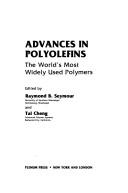| Listing 1 - 10 of 11 | << page >> |
Sort by
|

ISBN: 157105359X 1283060175 9047440021 9786613060174 Year: 2006 Publisher: Ardsley (N.Y.) Transnational Publishers
Abstract | Keywords | Export | Availability | Bookmark
 Loading...
Loading...Choose an application
- Reference Manager
- EndNote
- RefWorks (Direct export to RefWorks)
State Succession and Commercial Obligations sets out to answer once and for all the age-old question: Do commercial obligations survive state succession? Tai-Heng Cheng accomplishes this goal via careful analyses of efforts by the United Nations to codify the law of state succession, as well as of recent state successions involving East Timor, Hong Kong, Macau, Yugoslavia, Czechoslovakia and the Soviet Union. The insightful text identifies a common thread running through these seemingly disparate events. Because of globalization and our interdependence, transnational decision-makers have collectively shaped international law to protect the international infrastructure from being disrupted by state succession and to protect entities from being debilitated by post-succession obligations. State Succession and Commercial Obligations makes another major breakthrough by showing that the policy considerations and decision-making processes are similar in both state and government successions. Unlike prior theories that were bound by technical distinctions between state and government succession, this book’s approach helps decision-makers bring order to both state and government successions that continue to be problematic today, such as the “regime changes” in Iraq, Afghanistan and Kosovo. State Succession and Commercial Obligations is the only major treatise in fifty years to appraise the global development of the law of state succession and commercial obligations. This treatise is indispensable to legal scholars seeking to understand contemporary international law, judges and arbitrators adjudicating succession disputes, and transactional and trial lawyers representing financial institutions, corporations and states when succession is imminent or has occurred. Because this book distills complex legal concepts into elegant ideas, it is also fascinating reading for a general audience that has an interest in global affairs and the transformative successions since the end of the Cold War. Published under the Transnational Publishers imprint.
State succession. --- Commercial law. --- Succession d'Etats --- Droit commercial --- Handelsrecht. --- Staatensukzession. --- States, Creation of --- States, Succession of --- Succession of states --- International law --- Dismemberment of nations --- Recognition (International law) --- Business --- Business law --- Commerce --- Law, Commercial --- Mercantile law --- Law --- Law merchant --- Maritime law --- Law and legislation
Book
ISBN: 9780195370171 0195370171 Year: 2012 Publisher: New York: Oxford university press,
Abstract | Keywords | Export | Availability | Bookmark
 Loading...
Loading...Choose an application
- Reference Manager
- EndNote
- RefWorks (Direct export to RefWorks)
"When International Law Works stands to change the way states and scholars look at this contentious topic. In this seminal work, Professor Tai-Heng Cheng addresses the current international law debates and transcends them. Working from influential statements on international law by such scholars as Goldsmith, Posner, O'Connell, and Guzman, Cheng presents a new framework that states should consider when they confront an international problem that implicates the often competing interests of both their own communities and the global legal order. Instead of advocating for or against international law as legitimate or binding, as many commentators do, Cheng acknowledges both its shortcomings and benefits while presenting a practical means of deciding whether compliance in a given circumstance is beneficial, moral, or necessary. To demonstrate how his new proposal for approaching international law would work in a real crisis, Cheng provides numerous case studies from contemporary history that test his theory. Ranging topically from the current global economic crisis to the West's war on jihadist terrorism, these detailed and demonstrative case studies set this book apart from similar works of international legal scholarship. By combining theory with practice, When International Law Works gives policymakers, academics, and students 'real world' guidance on how to face new global problems. In doing so, this new book challenges readers to rethink the role of law in an increasingly crisis-driven world"--
International law --- International law. --- LAW / General. --- LAW / International. --- Law / general. --- Law / international.
Book
ISBN: 019970838X Year: 2012 Publisher: New York : Oxford University Press,
Abstract | Keywords | Export | Availability | Bookmark
 Loading...
Loading...Choose an application
- Reference Manager
- EndNote
- RefWorks (Direct export to RefWorks)
This title addresses the current international law debates and transcends them. Responding to influential scholarly statements on international law, the author presents a new framework that decision-makers should consider when they confront an international problem implicating the often-competing policies and interests of their own communities & global order. Instead of advocating for or against international law as legitimate or binding, Cheng acknowledges its shortcomings while presenting a practical means of deciding whether compliance in a given circumstance is beneficial, moral, or necessary.
International law. --- LAW / General. --- LAW / International. --- Law of nations --- Nations, Law of --- Public international law --- Law
Book
ISBN: 9789047440024 9781571053596 Year: 2006 Publisher: Ardsley, NY Transnational Publishers.
Abstract | Keywords | Export | Availability | Bookmark
 Loading...
Loading...Choose an application
- Reference Manager
- EndNote
- RefWorks (Direct export to RefWorks)

ISBN: 9780306426827 030642682X Year: 1987 Publisher: New York (N.Y.): Plenum,
Abstract | Keywords | Export | Availability | Bookmark
 Loading...
Loading...Choose an application
- Reference Manager
- EndNote
- RefWorks (Direct export to RefWorks)
Polymères --- Polyolefins

ISBN: 9027721289 Year: 1986 Publisher: Dordrecht : Reidel,
Abstract | Keywords | Export | Availability | Bookmark
 Loading...
Loading...Choose an application
- Reference Manager
- EndNote
- RefWorks (Direct export to RefWorks)
Polyolefins --- History.
Book
ISBN: 9004390596 Year: 2021 Publisher: Leiden, Netherland ; Boston, Massachusetts : Brill,
Abstract | Keywords | Export | Availability | Bookmark
 Loading...
Loading...Choose an application
- Reference Manager
- EndNote
- RefWorks (Direct export to RefWorks)
Book
ISBN: 9789004390591 9789004390584 Year: 2021 Publisher: Leiden;Boston BRILL
Abstract | Keywords | Export | Availability | Bookmark
 Loading...
Loading...Choose an application
- Reference Manager
- EndNote
- RefWorks (Direct export to RefWorks)
Book
Publisher: Kluwer Law International
Abstract | Keywords | Export | Availability | Bookmark
 Loading...
Loading...Choose an application
- Reference Manager
- EndNote
- RefWorks (Direct export to RefWorks)
International Arbitration in the United States' is a comprehensive analysis of international arbitration law and practice in the United States (U.S.). Choosing an arbitration seat in the U.S. is a common choice among parties to international commercial agreements or treaties. However, the complexities of arbitrating in a federal system, and the continuing development of U.S. arbitration law and practice, can be daunting to even experienced arbitrators. This book, the first of its kind, provides parties opting for "private justice" with vital judicial reassurance on U.S. courts' highly supportive posture in enforcing awards and its pronounced reluctance to intervene in the arbitral process. With a nationwide treatment describing both the default forum under federal arbitration law and the array of options to which parties may agree in state courts under state international arbitration statutes, this book covers aspects of U.S. arbitration law and practice as the following: institutions and institutional rules that practitioners typically use; ethical considerations; costs and fees; provisional measures; and confidentiality.There are also chapters on arbitration in specialized areas such as class actions, securities, construction, insurance, and intellectual property.--Publisher website.
Arbitration (International Law) --- Law --- Arbitration (international law)
Book
Publisher: Kluwer Law International
Abstract | Keywords | Export | Availability | Bookmark
 Loading...
Loading...Choose an application
- Reference Manager
- EndNote
- RefWorks (Direct export to RefWorks)
International Arbitration in the United States' is a comprehensive analysis of international arbitration law and practice in the United States (U.S.). Choosing an arbitration seat in the U.S. is a common choice among parties to international commercial agreements or treaties. However, the complexities of arbitrating in a federal system, and the continuing development of U.S. arbitration law and practice, can be daunting to even experienced arbitrators. This book, the first of its kind, provides parties opting for "private justice" with vital judicial reassurance on U.S. courts' highly supportive posture in enforcing awards and its pronounced reluctance to intervene in the arbitral process. With a nationwide treatment describing both the default forum under federal arbitration law and the array of options to which parties may agree in state courts under state international arbitration statutes, this book covers aspects of U.S. arbitration law and practice as the following: institutions and institutional rules that practitioners typically use; ethical considerations; costs and fees; provisional measures; and confidentiality.There are also chapters on arbitration in specialized areas such as class actions, securities, construction, insurance, and intellectual property.--Publisher website.
| Listing 1 - 10 of 11 | << page >> |
Sort by
|

 Search
Search Feedback
Feedback About UniCat
About UniCat  Help
Help News
News